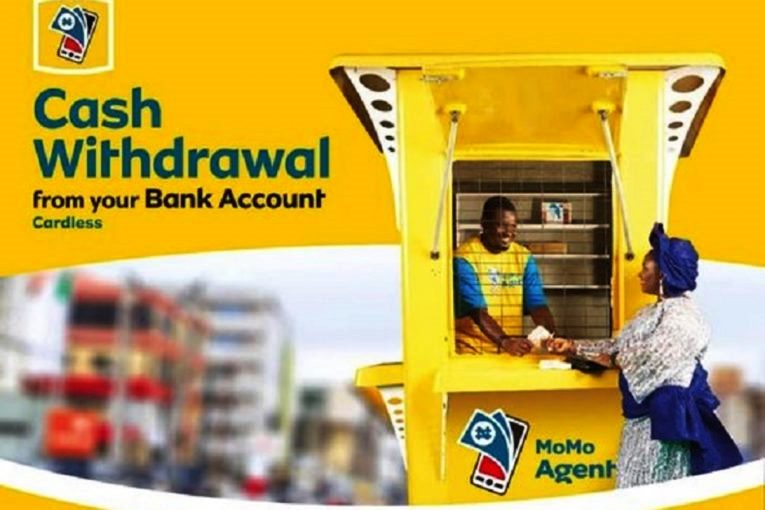
MTN Nigeria’s MoMo PSB Applies for Expanded Licensing
In a notable shift for Nigeria’s financial services, MTN Nigeria’s MoMo Payment Service Bank (PSB) has applied for two additional licences—Payment Service Solutions Provider (PSSP) and Payment Terminal Service Provider (PTSP). This expansion could redefine what financial services telecom-led PSBs can offer in Nigeria, marking a rare regulatory precedent that aligns with the Central Bank of Nigeria’s (CBN) evolving approach to financial inclusion. If approved, MoMo PSB will become uniquely positioned to deliver a broader range of financial services, expanding its role beyond the traditional limitations of a PSB.
Breaking Traditional Regulatory Barriers for PSBs
The CBN has historically restricted Payment Service Banks to specific, foundational roles. PSBs were established as “mini-banks” intended to support financial inclusion through basic transactions and limited banking services, particularly for rural and underserved populations. However, MoMo PSB’s application for PSSP and PTSP licences signals that the CBN may be adapting its policies to allow telecom-led PSBs to broaden their services, enabling them to engage in more diverse financial operations. This regulatory evolution could pave the way for PSBs to manage digital infrastructure and facilitate a more comprehensive suite of payment solutions.
Why These Licences Matter for MoMo PSB
The PSSP licence allows MoMo PSB to manage backend payment processing for digital transactions, effectively integrating a wide range of virtual transaction solutions. The PTSP licence enables the bank to manage physical payment terminals, expanding its reach to merchants and consumers across Nigeria. Together, these licences would provide MoMo PSB the flexibility to support both digital and in-person transactions, breaking away from traditional PSB limitations and enhancing MoMo PSB’s capabilities within Nigeria’s fintech market.
Expanding MoMo PSB’s Market Presence
MTN Nigeria has long demonstrated a commitment to financial inclusion and a digital financial services presence across the country. As a fintech subsidiary, MoMo PSB has already gained considerable traction, with millions of active wallets and an expansive agent network serving diverse customer needs. The additional PSSP and PTSP licences would enable MoMo PSB to offer a more versatile range of financial solutions, extending its reach to a larger network of merchants and end-users.
These expanded capabilities align with MTN’s strategic ambitions to compete more closely with traditional banks and fintech firms. As MoMo PSB begins to offer payment processing solutions previously exclusive to banks and other established payment providers, it may significantly influence the competitive dynamics of Nigeria’s financial services ecosystem.
New Opportunities for Merchants and Consumers
For merchants, MoMo PSB’s expanded services could simplify payment solutions and offer cost-effective options for managing transactions, attracting small businesses and informal sector players who have traditionally relied on cash transactions. For consumers, this enhanced offering may create a seamless experience for both virtual and physical transactions, especially valuable in a market where mobile-based services are often the primary mode of financial interaction.
Significance of This Regulatory Shift
MoMo PSB’s expanded licensing ambition represents more than just a milestone for the company; it points to a broader shift within Nigeria’s regulatory landscape. The CBN has acknowledged the need for flexible policies that can adapt to the rapid changes in fintech, and MoMo PSB’s application may signal a willingness to support a broader range of telecom-led financial solutions that are crucial to financial inclusion.

Financial Inclusion Goals and Telecom-Led Financial Services
This evolving regulatory approach aligns closely with Nigeria’s National Financial Inclusion Strategy, which aims to achieve a 95% financial inclusion rate by 2024. With a significant portion of the Nigerian population still unbanked, telecom-led financial services are increasingly seen as instrumental in bridging the gap. The possibility of expanded licences for telecom PSBs like MoMo could be a game-changer, enabling them to offer enhanced financial solutions that reach deeper into underserved communities and less accessible regions.
What This Means for Other PSBs and Market Competition
MoMo PSB’s success in obtaining these licences could set a precedent, encouraging other PSBs—such as Airtel’s SmartCash—to consider similar expansions. If multi-licence models become standard practice, other telecom-led banks may be inspired to pursue additional licences that allow them to broaden their service offerings. This could lead to a ripple effect within Nigeria’s fintech landscape, intensifying competition among PSBs, traditional banks, and fintech firms.
Potential Impacts on Nigeria’s Financial Ecosystem
The potential success of MoMo PSB’s multi-licence application could usher in a new era for telecom-led financial services in Nigeria, potentially transforming PSBs into versatile players capable of delivering a full suite of digital and physical payment solutions. This could lead to increased innovation in financial services, with telecom-led solutions emerging as viable alternatives to traditional banking for many Nigerians.
If telecom-led financial services gain a stronger foothold, this will likely drive further investment and innovation across the sector, with PSBs, fintech startups, and traditional banks working to capture the loyalty of Nigeria’s increasingly digital-savvy consumers.
Conclusion: A New Horizon for Telecom-Driven Financial Inclusion
MoMo PSB’s application for expanded licensing may signal the start of a new phase for Nigeria’s financial services sector. With the CBN’s evolving support for telecom-led financial services, MoMo PSB and potentially other PSBs are poised to transform the digital finance landscape by offering diverse, accessible, and consumer-friendly payment solutions. As Nigeria edges closer to its financial inclusion goals, telecom-led financial solutions appear set to play an even more critical role, reaching underserved communities and shaping the future of financial accessibility in Nigeria.
Have an inspiring startup story to share? We’d love to hear it! Get your business in the spotlight by being featured in our Startups Spotlight series. Send us your story, and let’s shine a light on your journey, challenges, and triumphs. Ready to inspire the next wave of founders? Drop us an email at emmanuel@hera.marketing and let’s make it happen!


